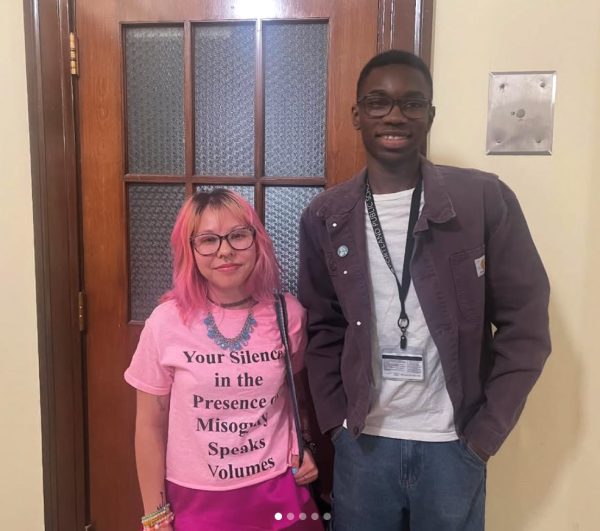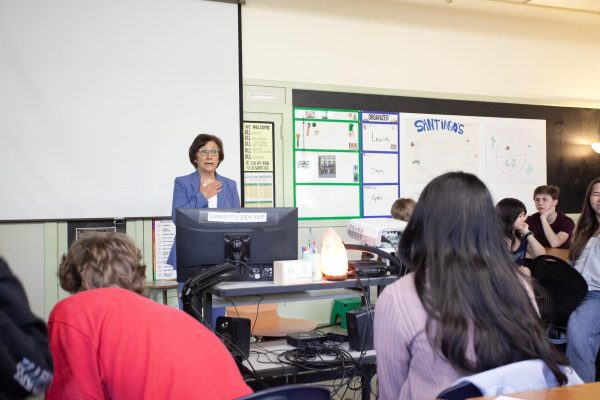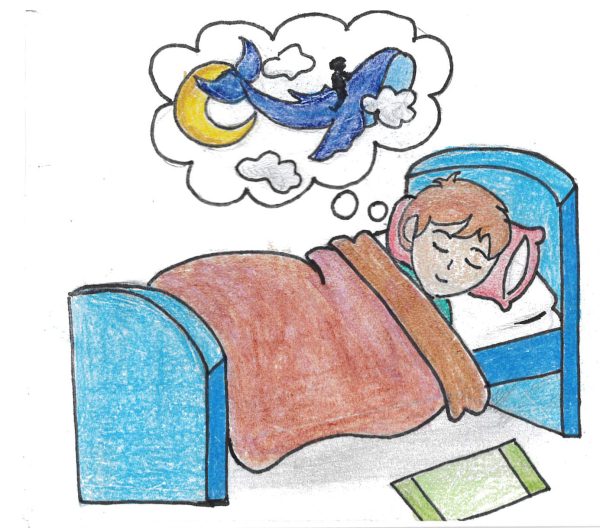Former Cleveland Volleyball Coach Files Title IX Lawsuit Against PPS

Clarion photo iStock
Cleveland High School PE teacher and former girls’ volleyball coach, Sydney Hammond, filed a Title IX lawsuit against Portland Public Schools in October in federal court, the second high-profile Title IX lawsuit PPS has faced in regard to girls’ athletics. The lawsuit states that Hammond was not paid for her work when she stepped in as the junior varsity coach after the program couldn’t find anyone else for the job. Hammond inquired about getting paid for the position to the athletics office and they responded by saying, “that Plaintiff (Sydney Hammond) would not be paid but she had to take the role anyway since no one else could be found,” according to court documents.
The lawsuit lists out the details of the mistreatment that the girl’s volleyball program has had to face, specifically in comparison to the football program. According to the lawsuit, football received financial support from the district for their pre-season retreat and game film software, a treatment that the volleyball program was denied. Not only this, but football, baseball, and wrestling coaches all received a 1% pay raise per season. Note that these sports are all male-dominated. Alternatively, girls’ volleyball coaches get a 0.5% pay raise per season.
The lawsuit also details the sexist treatment of Hammond in a meeting with district athletic director Marshall Haskins when she voiced her frustration for not being paid for the junior varsity coaching position. Throughout the meeting, he carried himself in an “unprofessional” manner; “Mr. Haskins began the meeting stating that he didn’t ‘know why we are even here because I’ve already told you no.’” According to the lawsuit, Haskins was making sexist and patronizing comments to the Plaintiff, and at one point even voiced to Hammond that there were “hundreds of coaches and you’re the only one being snippy about not getting paid and bringing up crap about male coaches getting paid more.”
The patronizing behavior that coach Hammond has faced has reportedly impacted the athletes as well. Marci Lapsley, a junior on the varsity volleyball team said, “I think the treatment of Sydney at times just made all of us in the volleyball program pretty defeated. But at the same time, it also made us extremely mad. To see someone who we all look up to be disrespected and mistreated hurt to watch.”
The lawsuit expresses that football coaches receive a significantly higher pay raise per year compared to volleyball coaches. It also states that PPS paid for the football program to participate in an overnight beach retreat, while the volleyball program’s retreat was not paid for by the district.
Lapsey also shared her view on the difference in support from the district between football and volleyball. “I would say that it just feels a bit unfair. We work just as hard as the football team at Cleveland, yet it still feels harder on us due to the fact that financially the sports are just not equal. Maybe I don’t know all the details, but I do not understand in any way why the football team receives more money than the volleyball program.”
Although Hammond has stepped down from her position as head coach of Cleveland girls volleyball at the conclusion of the fall season, she continues to “fight for equality in sports, for both coaches and athletes,” said varsity volleyball athlete Dylan Wise.
What should you do if you think your rights have been violated under Title IX?
If you have any information, talk to a vice principal, or if that is scary, text vice principal Sean Murray (971-645-8640), or text the district’s Title lX investigator Elizabeth Johnson (971-393-3560). Any additional information, such as evidence, should be given to administrators. This could be a personal story, pictures, texts, videos, or other evidence. Another option is to contact a confidential advocate. Whereas administrators, counselors, and teachers are mandatory reporters, confidential advocates are not. They can be a supportive resource and explain the process and be emotional support and work with you to make a safety plan that suits your position. Their hours are 11:30 a.m. to 4:30 p.m. in room 337 on Tuesday and Thursday. Or, call confidential advocate Pamela Zigo (503-388-8211) or email [email protected].

Hi I'm Lloy! This is my third year writing for The Clarion. Fun fact about me is that I'm a twin.







